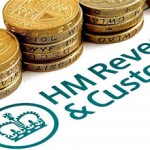How to choose an accountant

Selecting an accountant to support your business is an important decision and something you need to consider carefully. Dan Martin gathers advice from members of the community UK Business Forums.
How much should you pay?
As with everything in business, cost is a big consideration.
Fees for accountant vary hugely. You could be paying a little as £30 a month for a basic service, or as much as £500 for in depth services. They key thing is working out what you want the accountant for.
UKBF member ‘julliawilson’ advises: “Define the complexity of your accounting needs. The right accountant can help a business with not only tax returns, but with longer term tax planning, business planning, and even personal tax planning. Identify the areas where you need support and what you will need your accountant to do.”
Fellow member ‘cheaper accountant’ adds: “Many small businesses might simply want an accountant to complete all of the statutory duties such as preparing and submitting the annual accounts and annual corporation tax return. Here seeking an affordable price for the work seems reasonable.
“On the other hand, there will be clients with complex matters with large sums of money at stake who are prepared to pay a lot of money for detailed expert advice. Inheritance tax springs to mind. A client with a significant land holding amongst other assets is likely to need specialist accounting and legal advice and paying more for it from a large firm is very likely to be worthwhile.”
Qualified or not qualified?
In the UK, anyone can call themselves an accountant. Unlike solicitors, accountants do not need to have taken any particular examinations or training. However, most business experts recommend that you take on an accountant who is qualified.
Members of professional accountancy bodies must have professional indemnity insurance, so if there are any problems, you will be covered. You can also complain to the relevant organisation if the accountant gets something wrong.
There is a useful guide to the qualifications UK accountants can hold here. But in summary there are:
- Chartered Certified Accountant (ACCA or FCCA): Member or Fellow or the Association of Chartered Certified Accountants (ACCA)
- Chartered Accountant (ACA or FCA): Member or Fellow of the Institute of Chartered Accountants in England and Wales (ICAEW)
- Chartered Tax Advisor (CTA, ATII or FTII): Member or Fellow of the Chartered Institute of Taxation (CIOT)
- Chartered Accountant (CA): Member of the Institute of Chartered Accountants in Scotland (ICAS)
- Chartered Accountant (ACA or FCA): Member or Fellow of Chartered Accountants Ireland
- Chartered Management Accountant (ACMA or FCMA): Member or Fellow of the
- Chartered Institute of Management Accountants (CIMA)
- Certified Public Accountant (ASPA or FSPA): Associate or Fellow of the Association of Certified Public Accountants (ACPA)
Get recommendations
Don’t just Google ‘accountant’ and select the first result you see. Seek out references and recommendations. If you know other business owners, speak to them and ask about whether they can recommend their accountant.
UKBF member ‘HPS Outsourced Payroll’ says: “I don’t hold too much store in references unless they are going to give you a list of all their clients and you choose the ones you get references from, past and present.
“I would instead go to their professional bodies to see if they have any complaints against them, see if they belong to any organisations such as a Chamber of Commerce and if they are active, get references from the Chamber itself so the accountant has no idea if you are checking them out so the reference is likely to be more relevant.”
Accountant and UKBF member Philip Hoyle adds: “The best way to find an accountant is a referral from friend or relative who is already a client. Referrals from bank managers, IFAs etc are fairly meaningless as they probably won’t be using the accountant themselves for the services you need.”
A good relationship
To get the most out of the money you spend paying an accountant, you need a good relationship, so during the recruitment process, make sure you select someone you can work with.
“It’s a long-term relationship and a good accountant should help your business grow, so make sure you click,” says UKBF member ‘Andaleeb’. “Ask them if they will keep in regular touch with you, not just at the year end!
“Make time to visit their office before signing up. It’s the best way to assess the firm, their standards and practice environment. If you’re offered an initial free consultation, it should not be a sales pitch!”
Fellow member ‘EstherG’ adds: “A good accountant should identify areas for efficiency, suggest revenue opportunities and report on the performance of the business throughout the year not simply at the end of 12 months. The relationship should be far more than the accountant putting numbers in the right boxes!”
Source: businesszone- How to choose an accountant





























